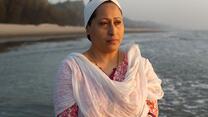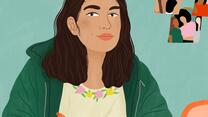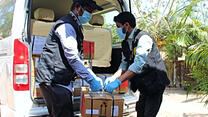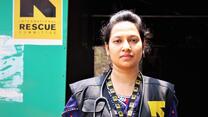Rohingya refugees are the world’s largest stateless group and one of the most persecuted.
More than 745,000 Rohingya have fled persecution in Myanmar’s Rakhine State to Cox’s Bazar, a district in neighbouring Bangladesh. There, the International Rescue Committee and its partners provide health care and protection for women and girls.
Women fleeing conflict and crisis face many dangers just because of their gender. Often they are met with violence on their journey. Too often women suffer in silence without any support, or anywhere to turn.
Safe spaces, where only women are allowed, are needed to offer women the chance to heal, rebuild and organise.
During Women’s History Month, we are shining a light on the stories and voices of refugee women who are reclaiming their futures.
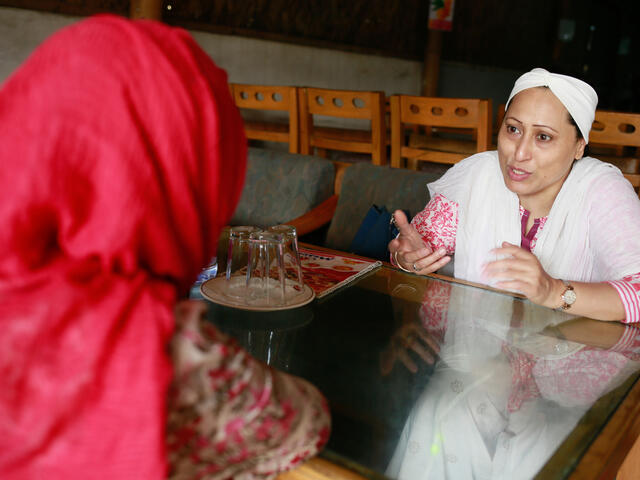
The IRC visited a women's centre in Ukhiya camp in Cox’s Bazar run by Razia Sultana, a Rohingya activist and lawyer who helps empower Rohingya women, educates them about their rights and works to end violence against women.
Zorina, 50
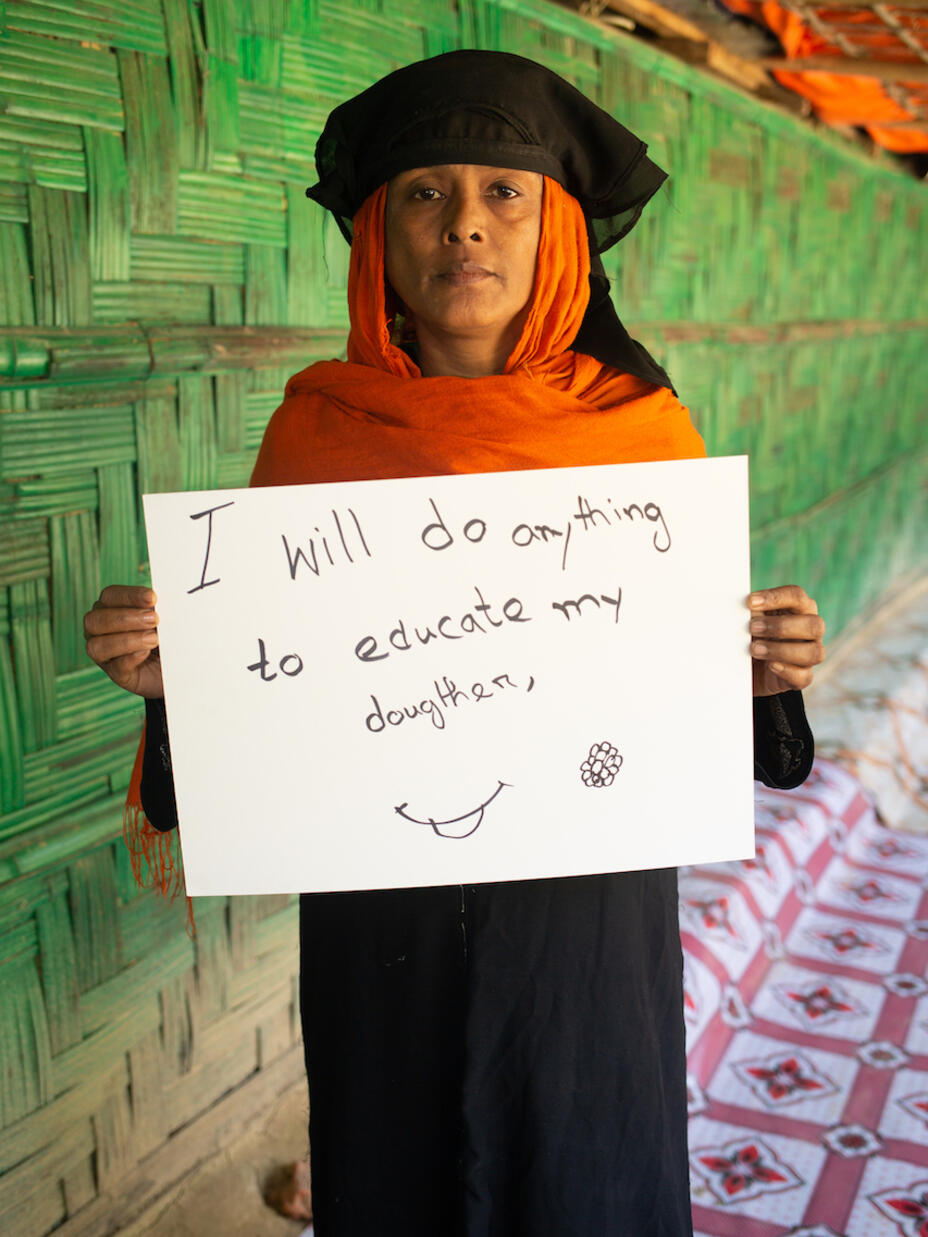
"I want [my daughter] to get an education so that she can grow up as a knowledgeable person in society. She wants to be a doctor. She had an education in Myanmar and now is studying English [in the camp]. I feel very happy she’s learning English."
Anowara, 26
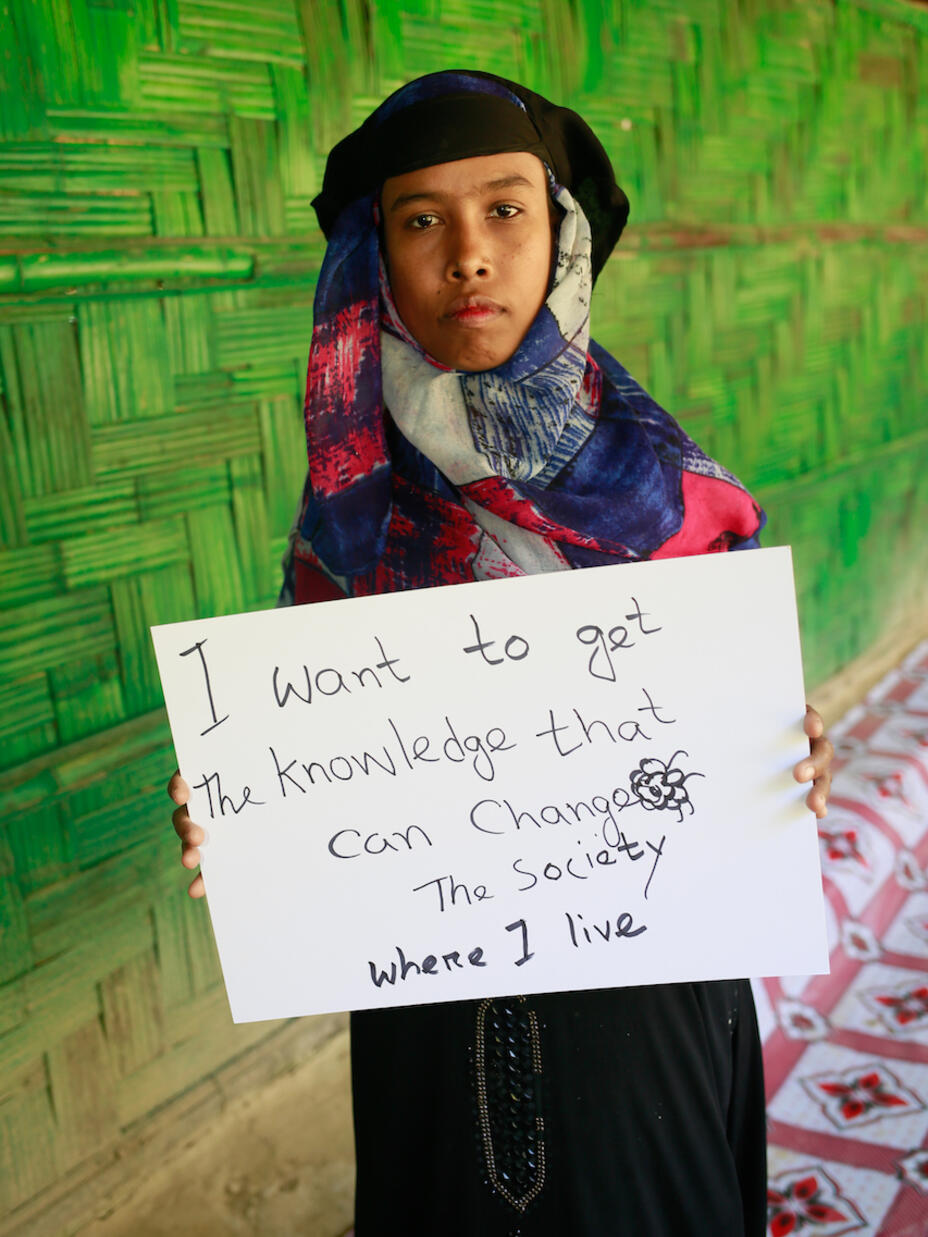
"After I started coming to the centre, I got the courage to speak out. If I see anything happening in my community; if anyone is quarrelling with each other, I can handle the situation. I have a voice in that situation.”
“Girls were not allowed to go to school in Myanmar. We were not treated equally. We want equal rights so we can work together and change society.”
Julekha, 35
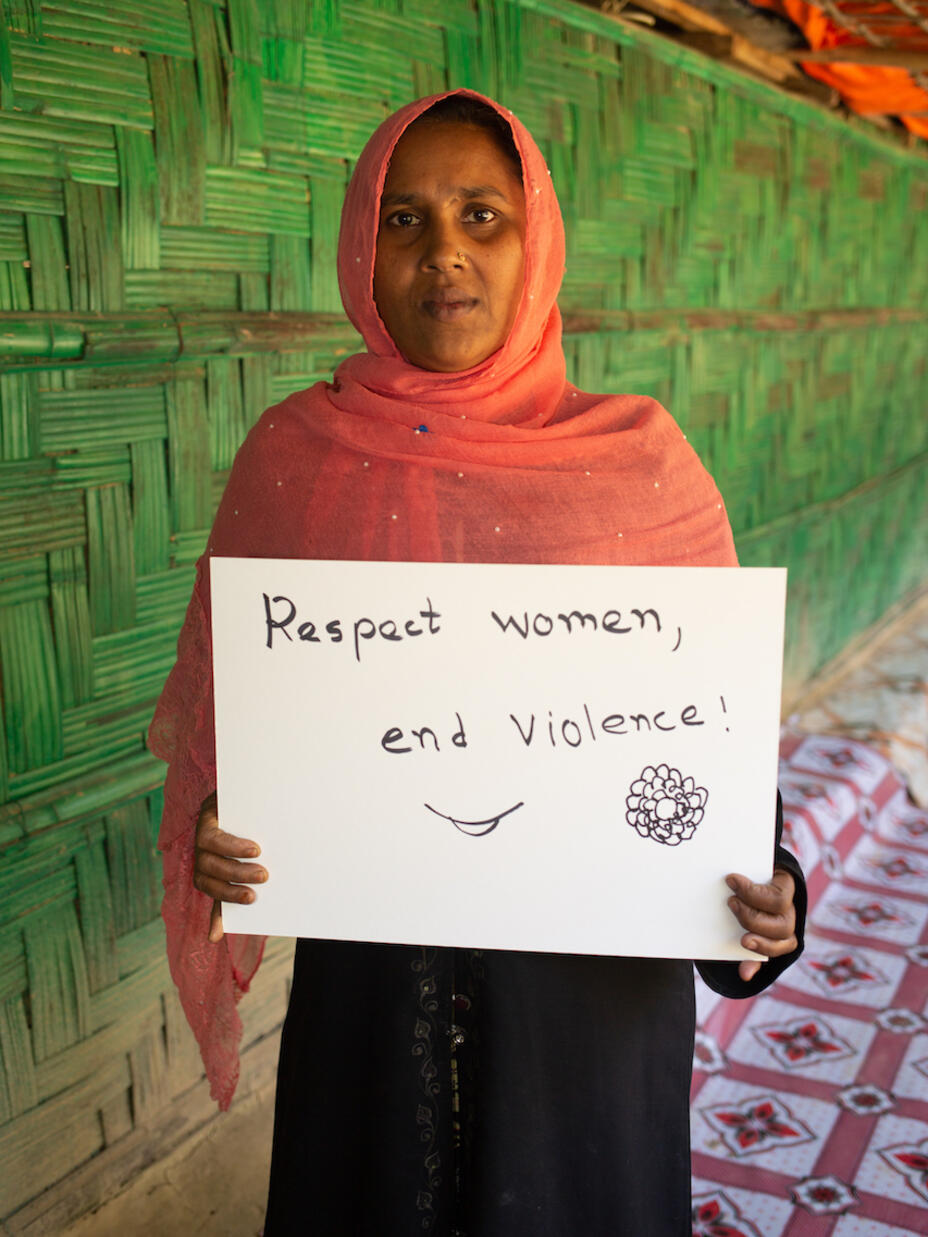
"We need sessions in the community to stop domestic violence. Everyone deserves respect whether you’re a man or a woman. I have six daughters who cannot go to the toilet whenever they need to because it’s far from our home. They have to wait until dawn to go out and, if it’s necessary, they cover themselves up.”
Fatema, 32
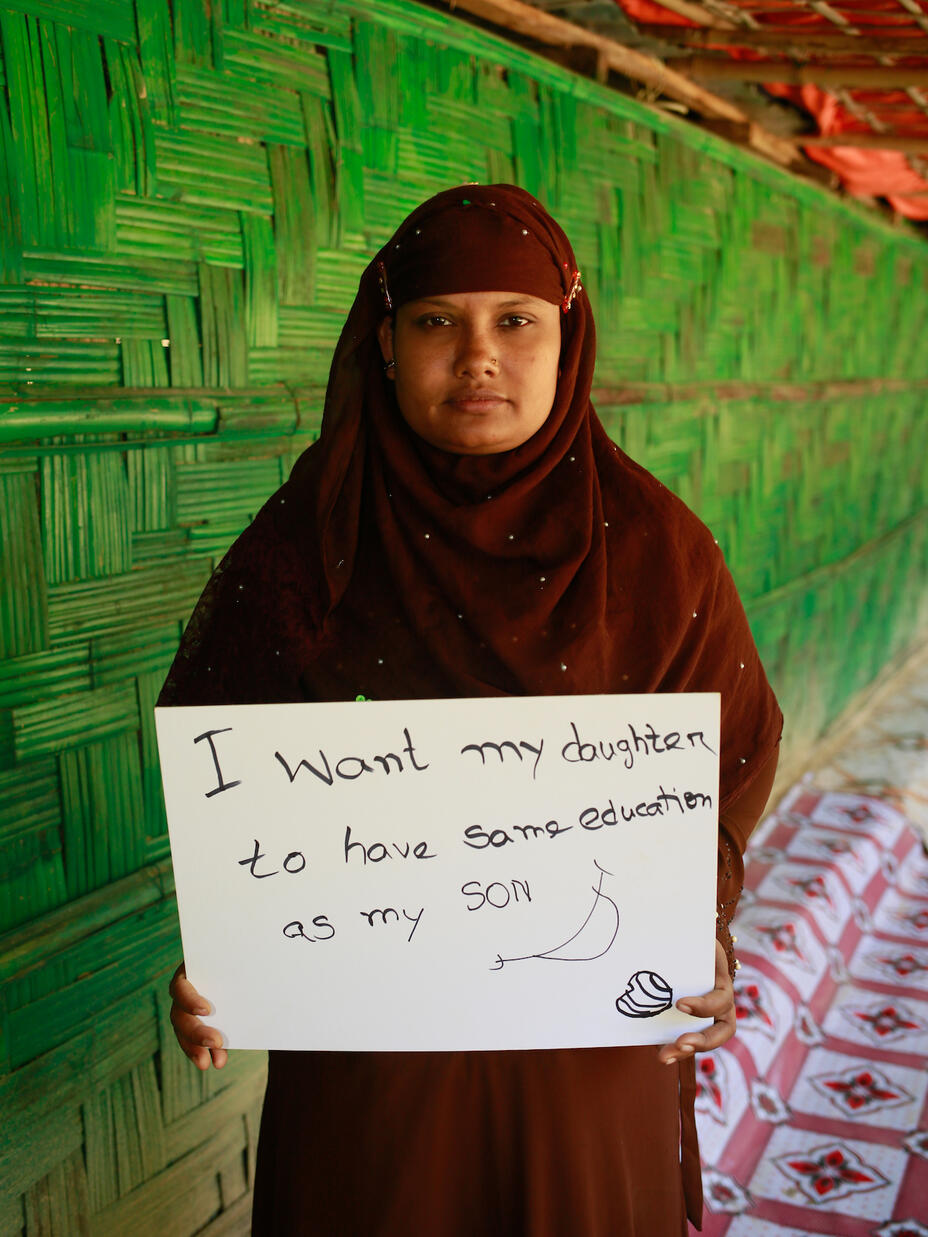
"I have a 12-year-old son and a 5-year-old daughter. They both got to school in the camp. If my daughter gets a good education, she will have the courage to talk to people and she can get a job and mix with the community wherever she lives. I love my daughter very much. I’m always worried about getting her a proper education and to give her the things she wants.”
How the IRC supports women
The IRC is working to ensure gender equality is a cornerstone of all of our programmes, so that women see real improvements to their safety, education and economic well-being. We are improving access to health centers and giving more women and girls the care they desperately need. We are developing new projects that support adolescent girls to stay in school and realize their potential. We are supporting more women with economic empowerment and cash assistance in emergencies. And we are finding new ways to empower women and girls and change harmful gender norms to create more equal communities.
Photos: IRC/Habiba Nowrose
